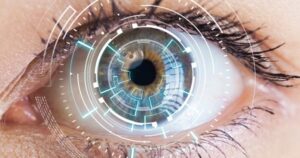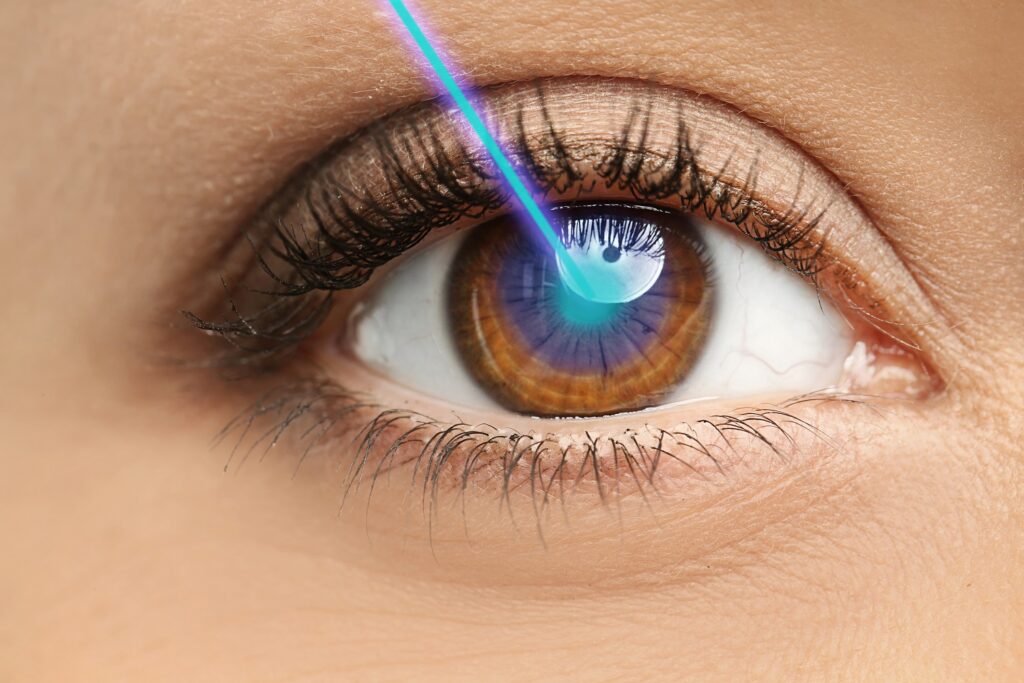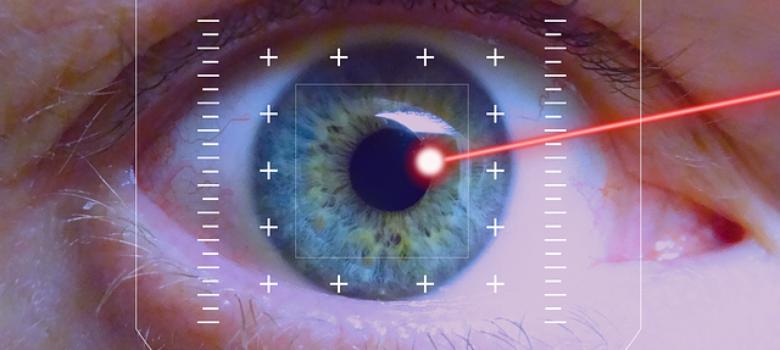LASIK surgery is a popular choice for people looking to improve their vision, but like any surgery, there are risks involved. In this blog post, we will discuss the most common LASIK complications and what you need to know about them. We will also provide information on how to reduce your risk of experiencing these complications. If you are considering LASIK surgery, make sure you read this post first!
Contents
What Is LASIK Surgery?

LASIK surgery is a popular elective procedure that can correct vision problems and reduce the need for glasses or contact lenses. The procedure involves reshaping the cornea so light entering the eye is focused properly on the retina. It can be used to treat myopia (nearsightedness) and astigmatism, as well as other vision issues.
This surgery is also generally considered safe and effective, with patients often reporting good results. However, like all surgeries, there are risks associated with LASIK surgery and potential complications that can occur.
Different LASIK Complications
Some people experience complications after obtaining laser eye surgery, but there are ways to prevent them. Here are some of the most common LASIK complications:
Dry Eye Syndrome
A dry eye is a common complication after laser eye surgery. Symptoms can include pain, discomfort, decreased vision, and sensitivity to light. To avoid dry eye syndrome, make sure to follow your doctor’s instructions for post-surgery care.
Glare Sensitivity
After having laser eye surgery, many people experience glare sensitivity. This means that they have difficulty seeing in bright environments or when there is a lot of light exposure. To reduce glare sensitivity, wear sunglasses and avoid staring directly at headlights on the road.
Eye Pain
Eye pain is another common complication after laser eye surgery. The pain can range from mild to severe and may lead to several days or weeks following the procedure. If you experience pain after your appointment, tell your doctor right away so that they can investigate the cause and prescribe appropriate treatment.
Visual Impairment
Laser-induced blindness (LBI) is a serious complication that can occur after laser eye surgery. LBI occurs when the surgeon does not remove all of the extra cornea tissue during the procedure which leaves a tiny hole in the center of your vision called epiphora (epi-uh-FOR-uh). Epiphora can lead to loss of vision or even blindness if it’s not treated immediately. If you experience any visual problems following your surgery, tell your doctor immediately.
Dry Eye After LASIK Surgery
Another common complication following LASIK surgery is dry eye syndrome. This condition occurs when the eyes no longer produce enough tears due to laser damage or changes in the eye’s surface layer called the epithelium. Symptoms of dry eye syndrome may include blurry vision, headaches, tiredness, sensitivity to light or glare, pain when looking at close objects.
Scarring
Around 10 percent of patients experience scarring following LASIK surgery, which can cause adverse effects such as reduced visibility and sensitivity in one or both eyes. Scarring can also lead to other complications such as amblyopia (lack of visual acuity in one eye due to abnormal development) or red light eruption (a condition that causes lesions on the cornea caused by exposure to bright light).
Feeling Pressure in One or Both Eyes
Another complication can be feeling pressure in one or both eyes shortly after the surgery. This sensation can be caused by the surgeon’s knife cutting into the eye or by the thin flap of tissue that is removed during the surgery. Sometimes the pressure can be relieved by using eye drops or by lying down for a few minutes. If the pressure doesn’t go away after a few minutes, contact your doctor.
Blurry or Flaky Vision
Some people experience blurry or flaky vision following LASIK surgery. This is usually temporary and gradually improves over time. Flaky vision can be caused by the surgery itself, post-operative inflammation, or dry eye syndrome. To reduce the risk of blurry vision, make sure to follow your doctor’s instructions for post-surgery care. Sometimes a prescription for glasses or contact lenses can be necessary.
What Can You Do To Prevent These Complications?

Preventing these complications is a combination of taking steps to lower your risk factors and getting timely medical care.
Some of the ways to prevent these complications are:
Maintaining a healthy weight
One of the most important ways to prevent these complications is to maintain a healthy weight. Obesity can increase your risk of developing diabetes, high blood pressure, and heart disease.
Regular exercise
Regular exercise can also help to prevent these complications. Exercise can help to lower your risk of developing type 2 diabetes, heart disease, and some types of cancer.
Maintaining good cholesterol levels
Another way to prevent these complications is to maintain good cholesterol levels. Cholesterol is a type of protein in your body and it helps to form cell membranes. High cholesterol levels can lead to heart disease and stroke.
Avoiding smoking
Also, avoid smoking. Smoking can increase your risk of developing heart disease, cancer, and other types of complications. Smoking maybe also increase your risk of developing type 2 diabetes.
Getting timely medical care
If you experience any type of complication, get timely medical care. This will help to ensure that you receive the best possible treatment and minimize your chances of developing these complications in the future.
How to Treat LASIK Complications?

If you’re experiencing any of the following LASIK complications, it’s important to get them treated as soon as possible. Some of the available treatment options include:
Medications
One of the main ways to treat LASIK complications is to take medication. This can help to reduce the inflammation that can occur after LASIK surgery. Some of the common medications that are used to treat LASIK complications include:
Acetaminophen (Tylenol): This medicine makes it a lot easier for you to tolerate the pain that can be caused by LASIK surgery.
Ibuprofen (Advil, Motrin): These medicines help to reduce inflammation and aid in the healing process.
Naproxen (Aleve, Naprosyn): This is a non-steroidal anti-inflammatory drug that is often used to treat pain.
Celebrex (Celebrex): This medication is also known as a Cox-2 inhibitor and helps to reduce inflammation.
Aspirin: Aspirin can help reduce the risk of heart attack or stroke after LASIK surgery. Talk with your doctor about how much aspirin you should take after LASIK surgery.
Surgery
Another common treatment method that you may require is surgery. Surgery can be used to remove the debris that has been created after LASIK surgery. This may include:
Surgical removal of the flap: In some cases, surgical removal of the flap may be necessary to improve your vision.
Surgical correction of the refractive error: If you experience severe vision problems after LASIK surgery, a surgical correction of the refractive error may be required. This will help to correct your vision and improve your quality of life. Some of these surgeries also include a refractive surgery implant.
Contact Lenses
Another common treatment for LASIK complications is contact lenses. Contact lenses can help to improve your vision by restoring your original eye shape and color. Contact lenses are often used in conjunction with other treatments, such as medication and surgery. Some of the contact lenses that can be used to treat LASIK complications include:
Scleral contact lenses: These lenses are designed to replace the natural lens in your eye.
Intraocular lens (IOL): An IOL is a type of contact lens that is inserted into your eye. This type of contact lens can help to improve your vision.
Custom Contact Lenses: If you have specific vision needs that cannot be met by any of the other types of contact lenses, a custom contact lens may be a good option for you.
Eyeglasses
If you are experiencing vision problems after LASIK surgery, wearing eyeglasses may be a good option for you. Eyeglasses can help to correct your vision and improve your quality of life. Some of the types of eyeglasses that are often used to treat LASIK complications include:
Anterior chamber glasses: These glasses help to correct your vision by aligning the front surface of your eye with the front surface of your glasses.
Corrective lenses: Corrective lenses are worn to restore your original eye shape and color. They can be either prescription or non-prescription lenses.
Conclusion
If you’re thinking about having laser eye surgery, be aware that some possible complications can occur. In this article, we have discussed some of the most common LASIK Complications and what you can do to prepare for them. Armed with this knowledge, you’ll be able to make an informed decision about whether or not laser eye surgery is right for you.
There are a few things that you can do to prevent these complications from happening, such as being prepared and knowing what to expect. Make sure you have all of your medical records available, request copies of any reports or imaging that may be performed during the procedure, educate yourself about the surgery, and ask questions if you’re not feeling well after the procedure.
Lasik surgery is a safe 10-minute procedure to help you get rid of glasses. MantraCare offers the most advanced LASIK options. If you have any questions on LASIK surgery feel free to reach out to us at +91-9711116605.
